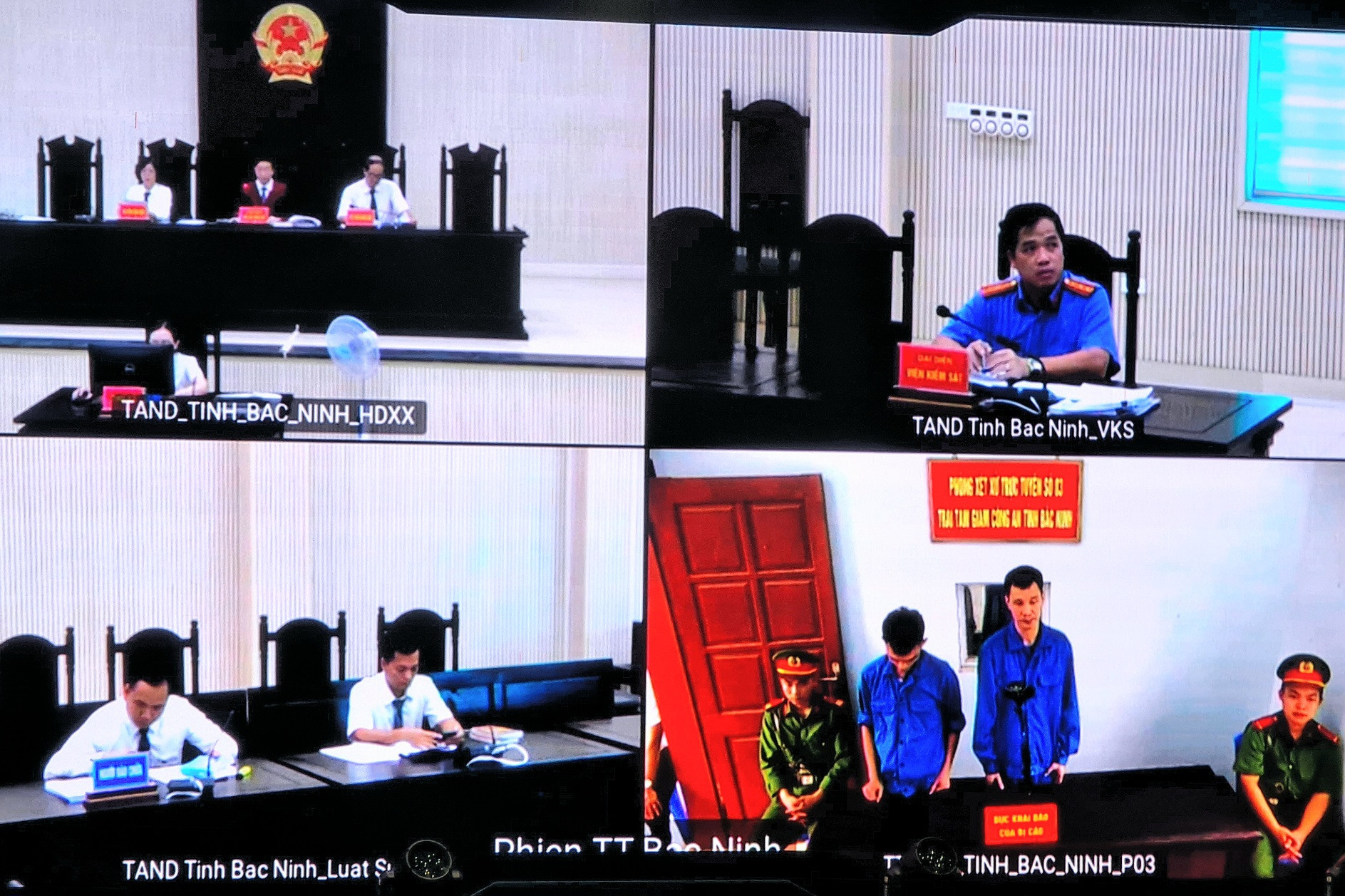
In response to practical demands and to ensure timely resolution of cases as required by law, the Supreme People's Court of Vietnam proactively proposed and received approval from the National Assembly to organize online trials.
Online trials represent a new method in the judiciary's operations, reflecting the adaptation to and alignment with the values of a modern judiciary in the digital era.
Following approval from the National Assembly, the Supreme People's Court promptly issued numerous guidelines, establishing a legal framework for conducting online trials.
In several provinces and cities, the investment in technology and IT infrastructure to facilitate online trials has been supported by local budgets, such as Hanoi, Bac Ninh, Ha Giang, Lao Cai, Nghe An, Quang Binh, and others.
Thanks to proactive efforts, tens of thousands of online trials have been conducted by various courts. According to the Supreme People's Court, nearly 20,000 cases have been tried online in coordination with prosecutorial agencies since January 1, 2022.
The implementation of online trials has brought numerous tangible benefits to the public and society. This method reduces large gatherings, makes it easier for people to access justice, saves travel costs, and minimizes the risks associated with commuting.
Additionally, online trials reduce the costs of escorting and protecting defendants and address the issue of non-appearance by defendants, thus minimizing delays in administrative case resolutions.
In many instances, online trials also ensure a more humane approach, especially in criminal cases involving sexual offenses or child victims, who do not need to appear in court in person.
According to a report by the High People's Court in Da Nang, it organizes about 40 appellate councils at local courts annually, with each session lasting 10-15 days and costing between 60 to 100 million VND. The total annual cost for these councils is about 3.2 billion VND. However, since the implementation of online trials, Da Nang has saved approximately 50% of these costs, equivalent to 1.6 billion VND annually.
The Supreme People's Court's specialized units estimate that with 20,000 cases tried online, the state budget has saved over 96 billion VND.
Based on practical experiences from other countries suggest and estimation by experts, implementing electronic courts can save 10% to 15% of court operating costs and social costs while providing the public with a modern and efficient judiciary.
Trong Dat